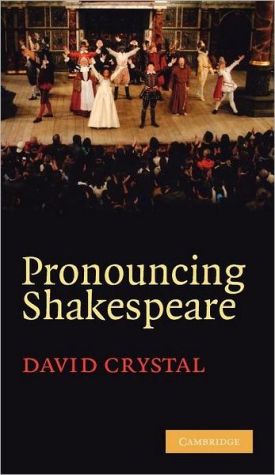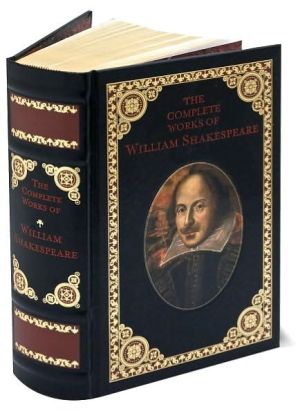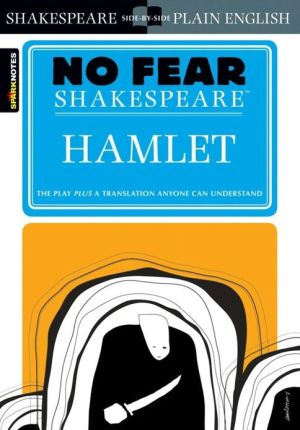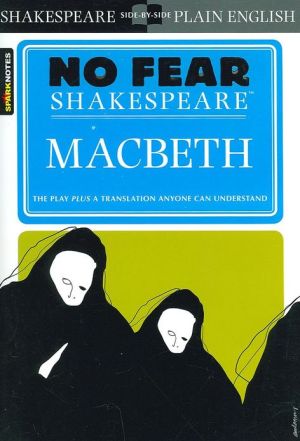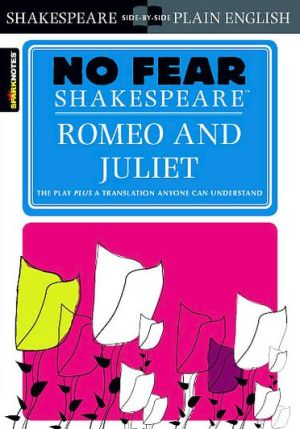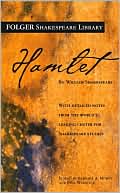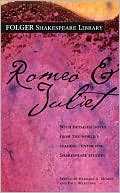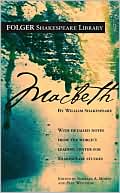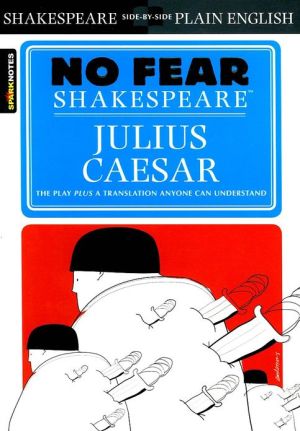Pronouncing Shakespeare: The Globe Experiment
How did Shakespeare's plays sound when they were originally performed? How can we know, and could the original pronunciation ever be recreated? For three days in June 2004 Shakespeare's Globe presented their production of Romeo and Juliet in original, Shakespearian pronunciation. In an unusual blend of autobiography, narrative, and academic content, reflecting the unique nature of the experience, this 2005 book by David Crystal recounts the first attempt in over 50 years to mount a...
Search in google:
A collection of literature anthologies and reference books for Key Stage 3 onwards.
\ Cambridge University Press\ 0521852137 - Pronouncing Shakespeare- by David Crystal\ \ \ \ \ \ Idea\ Do you know the Globe? Shakespeare's reconstructed Globe theatre, on the south bank of the Thames, nestling between London Bridge and the Tate Modern. Look at it from the river, and at first sight it seems totally out of place, with the multi-laned city traffic to the left and the towering chimney of the renovated gallery to the right. But look from the south bank in the direction of St Paul's, and try to think back in time a little, and suddenly it is the twentieth-century traffic and chimney which are out of place. The Globe seems as if it might have been there for centuries.\ And in a sense it was. For the first Globe was built in 1599 very close to where the current building stands. We know this because there are several printed panoramic views of London, dating from around 1600, which show the theatre among the buildings of Southwark. The original site is now largely buried under the foundations of modern apartments, 200 yards away, but what is 200 yards when you are trying to achieve a vision? And that is what the reconstructed Globe is - a vision.\ The vision belonged to American actor, director, and producer Sam Wanamaker, who conceived the project after his first visit to London, as long ago as 1949. In 1970 he formed the Globe Playhouse Trust dedicated to the reconstruction of the theatre and the provision of education and exhibition facilities. A huge amount of fundraising later, the site was bought and the building completed. The Globe mounted its first production, The Two Gentlemen of Verona, in a 'prologue season' towards the end of summer 1996. It took place on a temporary stage, with much of the outside area still a building site. Then, in May 1997, the official opening took place, with the company performing four plays by Elizabethan dramatists, including two by Shakespeare. Sadly, Sam Wanamaker saw none of this. He had died from cancer in December 1993.\ The reconstruction is as close to the original as modern scholars and traditional craftworkers can make it. Excavations on the sixteenth-century site in 1990 indicated that it was a twenty-sided building with a diameter of 100 feet - fitting the description (with a little poetic licence) of the 'wooden O' referred to by the Chorus in Henry V. We know that timbers from the demolished Theatre playhouse in Shoreditch were carried across the Thames by members of the company to help build it. There are hints about its interior in contemporary accounts, both from the builders and from those who attended plays there. A contemporary sketch of another Elizabethan theatre, the Swan, suggests a possible stage layout, but the design of the Globe stage, and especially the location of the two large pillars holding up the roof, was a matter of considerable conjecture.\ The project used building techniques which replicated, as far as possible, those used at the time. Green oak was cut and shaped according to sixteenth-century practice. Lime plaster was mixed following a contemporary recipe. Water-reed thatch was used for the roof, based on samples found during the excavation. Each element of the balustrades was turned by hand by woodworkers. The demands of modern fire precautions of course placed limits on what could be done, and such things as illuminated fire-exit signs, two additional exits, and extra lighting were introduced to meet the safety needs of a modern audience, as well as to aid visibility during evening performances. It is possible to hire a cushion to reduce the impact of the wooden benches on sensitive modern posteriors. There are toilets on site. And when it rains, the groundlings in the yard, open to the elements, can buy plastic capes. But apart from these nods in the direction of modern comfort and convenience, the building gives its visitors a powerful impression of authenticity. It feels right, even though scholarly debate continues.\ Or, at least, it feels like nothing else in the modern theatrical world. The Globe, despite its contradictions (such as Elizabethan dress on stage; modern dress in the audience), has presented a challenge to modern theatrical values. The journey has been a process of exploration, a voyage of discovery. Would a modern theatre audience be prepared to stand for three hours to watch a play? Would they interact with the actors, when invited to do so? Would they interact when not so invited, and what would the actors do then? How can one turn a fixed structure, with all its performance limitations, the result of highly informed guesswork - but guesswork nonetheless - to best advantage? There has been plenty of opposition, as well as support, for the Globe project. The principle has been to introduce radical ideas tempered with caution, to look for ways of liberating performance without doing things that get in the way.\ One of the most interesting outcomes has been to draw attention to the process of dramatic interactivity, demonstrating the creative role of the playgoer. My most vivid memories of productions are those where that mysterious border between actor and spectator is crossed. And it is language that usually provides the bridge. I had never thought of Caliban as a hero until I heard the entire audience, football-crowd-like, shouting 'Ban, ban, Ca-caliban' over and over in support for him as we approached the interval in the 2000 production of The Tempest. I had never achieved a full sense of the patriotic fervour implicit in Henry V until I heard (in 1997) the entire audience, pantomime-like, shouting support for the English side against the French - or at least, most of us, for a group of French tourists in the audience vociferously shouted in the other direction, much to the delight of the French nobles. I had never expected to be placed on the spot by Hamlet, until I found myself responding aloud, along with everyone else, to Mark Rylance's full-frontal question, 'Am I a coward?', in the 2000 production. Whether the effects were stage-managed or spontaneous, each regular Globegoer will have a personal audio-visual picture album of actor-audience memories to match mine.\ The open-air venue adds its own character to the occasion. It is not just a matter of the sun, wind, and rain making their contribution. Birds fly in and out. Performances and performers have to contend with the noise of London - police sirens, helicopters, airbusses en route to Heathrow ... During one performance in the Romeo and Juliet weekend, the actors fought for half an hour against two helicopters circling overhead, as the Olympic torch arrived nearby. During another, there was a torrential downpour, and a lightning accompaniment which might have suited King Lear but did not gain the approval of the Nurse. Often the interventions work to advantage. 'The isle is full of noises', said Caliban, at one of the Tempest performances - and to everyone's delight, a pair of river-boats hooted. And at one point in Juliet's anguished speech about Romeo being banished, a nonchalant pigeon landed on the stage in front of her, but quickly lost its nonchalance when Juliet went for it.\ Nobody at the Globe much likes the word 'authentic'. It is a difficult adjective to justify, given that so little is known about theatrical practice in Shakespeare's time, and the modern environment inevitably makes its presence felt, as does the modern weather. Performances take place for only half the year, between May and September. Evening performances are routine, whereas they were afternoons-only, at the original Globe. The theatre itself can be no more than a 'best guess' as to how things were. And the same sense of limitation pervades all aspects of the productions - casting, clothing, properties, design, music, movement ... Every attempt at an 'original practice' is an experiment, whether it be the casting of men in women's roles, the design and making of contemporary costume, or the performance of songs and instrumental music. The Globe has nonetheless carved out for itself an enviable reputation in each of these areas. Although by no means restricting itself to original practices - for example, there have been productions in modern dress, as well as all-female casts - it is, to my mind, what it does best. And, throughout its first twenty-eight productions, from 1996 to 2003, its audiences have been exposed to interpretations of most aspects of the Elizabethan stage. With one striking exception. The Globe had not touched original pronunciation (OP).\ Tim Carroll, the Romeo and Juliet Master of Play, had thought of doing a production in OP before, when the company was planning Twelfth Night in 2002. He had even suggested that it might be used for the whole run. Nobody doubted the spirit of the argument - that original practice in pronunciation was just as valid an aim as original practice in any other area of stagecraft. But in-house opinion was, understandably, against it. The chief problem was that nobody knew just how it would sound. Perhaps it would be so different from present-day pronunciation that audiences would simply not be able to follow it? An unintelligible play could produce an attendance catastrophe. No theatre, least of all the Globe, with its attendances restricted to five months of the year, and just four plays in production, could afford to alienate a quarter of its audience. They dropped the idea.\ But, like all good ideas, the thought would not go away. Tim kept getting asked, in workshops, 'How did it sound originally?', and found himself unable to answer the question. So, in the planning for the 2004 season, he returned to it. This time he suggested a three-performance experiment, a month into the season. It would be publicized as such, so that audiences would know they would be getting something different. There was still some in-house uncerta inty. Would the actors be able to cope with two versions of the play to perform? Would it not require two rehearsal regimes, in a very tight schedule? Tim had another argument. Surely the Globe had to be the first to mount such a production, in modern times? There had been no such experiment since John Barton's Julius Caesar in 1952. If the Globe didn't do it, someone else would. Could the Globe live with that? The answer was no. Artistic director Mark Rylance gave the experiment his blessing. And so it was decided, in the autumn of 2003, that for the Globe's twenty-ninth production the resonances of Elizabethan English would once again be heard on a stage in Southwark.\ \ \ \ \ \ © Cambridge University Press
Prologue1Idea12Proposal113Evidence434Rehearsal975Performance1336Consequences161App. 1Chief distinctive Early Modern English vowels175App. 2Extracts from the transcription177App. 3Audio-visual aids181
\ From the Publisher"...bedazzles you with an eye-popping presentation of the cluck-clucking of the mother tongue. If you like fireworks with your information, this is a worthwhile language book." --William Safire, The New York Times Magazine, on the first edition of The Cambridge Encyclopedia of the English Language (1995)\ "...a monstrous amount of information on a fascinating topic arranged in a clear, concise, and, above all, entertaining manner...can only lead to uncontrollable reading binges lasting hours or perhaps days." --Quill & Quire on ^The Cambridge Encyclopedia of the English Language\ "This is a fascinating and useful book....a fine introduction for a wide variety of potential users." --Choice on English as a Global Languge (Cambridge, 2003)\ "...offers compact, profound, and easily accessible insights into the problem of linguistic extinction." --Choice on Language Death (Cambridge, 2000)\ \ \
